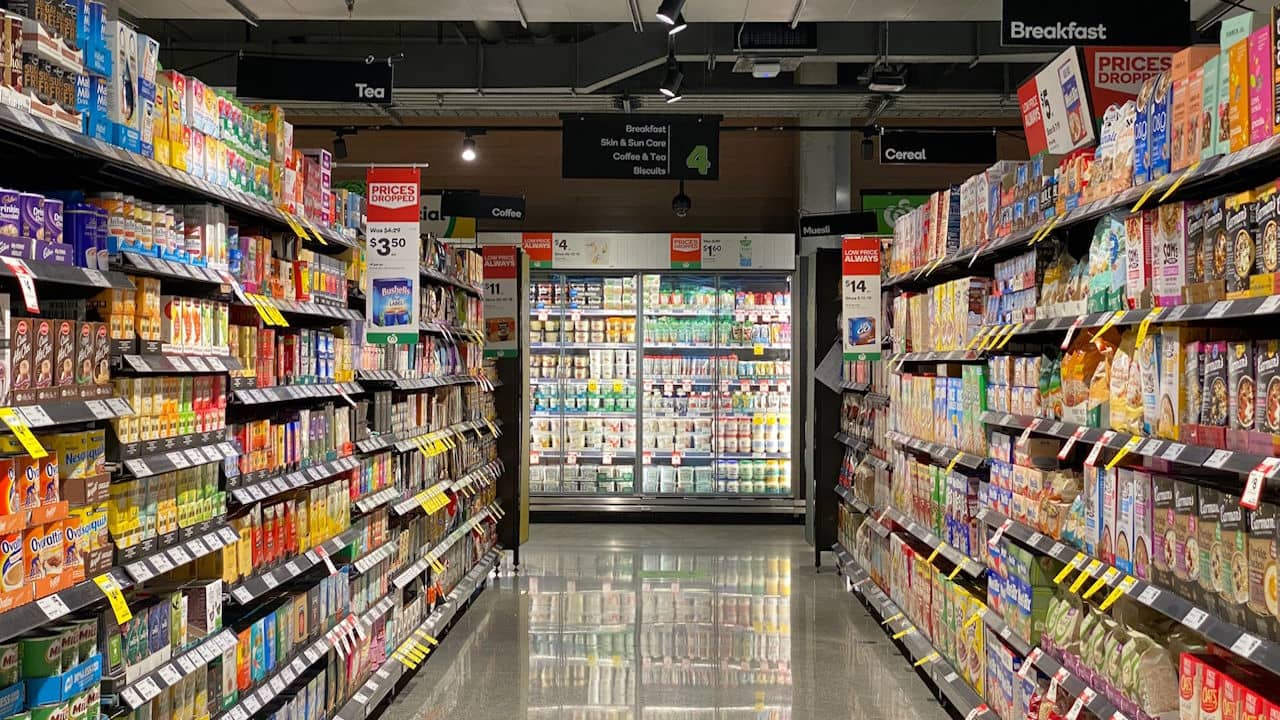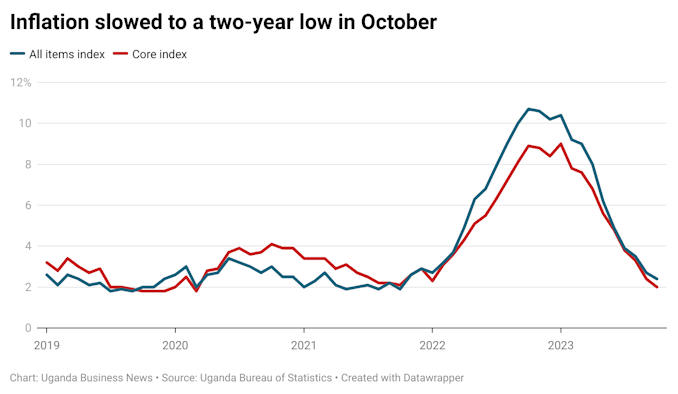
Consumer prices fell for the ninth consecutive month in October as underlying prices continued to ease, the Uganda Bureau of Statistics said Tuesday.
The consumer prices index, which measures the cost of goods and services to households, decreased to 2.4 per cent year on year in October, down from 2.7 per cent in September and the slowest increase witnessed in 24 months.
The main driver of the decline in the headline rate was the slower increase in core consumer prices, which rose by 2 per cent compared to 2.4 per cent in the previous month. Other goods inflation declined to 1.8 per cent from 3.1 per cent a month earlier, driven by a fall in the prices of maize flour and sugar. However, services prices rose by 2.2 per cent, up from 1.6 per cent in the 12 months to September, driven by education services inflation.

Prices of food crops and related products rose by 6.6 per cent in the year to October, compared with 7.9 per cent in the previous month. Ubos said fresh cassava prices continued to fall, while round onion prices rose more slowly than in the 12 months to September. Green cabbage and Irish potato prices also fell, contributing to the slowdown in food crop inflation.
Energy, fuel, and utilities prices rose 2.2 per cent in the year to October, up from a fall of 1.2 per cent in September. The statistics bureau attributed this to an increase in the prices of petrol, electricity, water, and diesel.
The monthly inflation rate slowed to 0.6 per cent from 0.7 per cent the previous month. Core inflation on-month was unchanged at 0.3 per cent. Energy, fuel, and utilities inflation was 1.1 per cent, down from 1.7 per cent in September. Food crops and related items inflation also slowed to 2.4 per cent from 3.8 per cent a month earlier.






